
Revival of Gay Ad Exec’s Bias Suit May Spur Title VII Update
https://www.courthousenews.com/ADAM KLASFELD
MANHATTAN (CN) – Breathing new life into claims of outrageous discrimination against a gay advertising executive, the Second Circuit chipped away at an old precedent excluding sexual orientation from Title VII protections.
Matthew Christiansen, a creative director at DDB Communications Group, filed a $20 million lawsuit against his bosses and their corporate parent Omnicom Group in May 2015, describing an obscene and humiliating campaign of harassment against him.
Christiansen said this reached a height in 2011, when his supervisor drew several graphic pictures of him on a whiteboard, including ones depicting him as a “four-legged animal with a tail and penis, urinating and defecating,” and a Facebook post of a “Muscle Beach Party” with his head superimposed on a bikini-clad woman.
Another illustration, he said, showed him naked, muscular and holding a manual air pump to his erect penis next to the text bubble: “I’m so pumped for marriage equality.”
At the time, the Supreme Court had not yet made same-sex marriage the law of the land with Obergefell v. Hodges, and the Equal Employment Opportunity Commission had not started interpreting Title VII to include sexual orientation.
Though much has changed since then, legal precedent still leaves many lesbian, gay, bisexual and transgender workers out in the cold when it comes to workplace discrimination.
In 2000, Second Circuit ruled that Title VII did not protect on the basis of sexual orientation in Simonton v. Runyon, a ruling it upheld five years later in Dawson v. Bumble & Bumble.
These precedents led a federal judge to dismiss Christiansen’s case last year.
Reviving the case on Monday morning, the Second Circuit unanimously found that Christiansen could sue his employers for gender stereotyping.
“Employers will now take sexual orientation harassment seriously because it’s now law in this circuit that you don’t harass people because of their sexual orientation,” Christiansen’s attorney Susan Chana Lask said in a statement.
In fact, the circuit stopped just short of making this finding, with the judges unanimously finding they do not have the power to strike the old precedents.
Two of the judges urged a higher court to consider the “changing legal landscape that has taken shape in nearly two decades,” and update Title VII to fully protect LGBT workers.
Circuit Judge Robert Katzmann, who also sat in the panel in the Simonton case, noted that gender stereotyping goes hand-in-hand with discrimination based on sexual orientation.
“More fundamentally, carving out gender stereotypes related to sexual orientation ignores the fact that negative views of sexual orientation are often, if not always, rooted in the idea that men should be exclusively attracted to women and women should be exclusively attracted to men – as clear a gender stereotype as any,” Katzmann wrote in a 15-page concurring opinion.
In a phone interview, Christiansen’s lawyer Lask said her client endured his hostile work environment despite pressure to leave.
“The point being, Matt still works there, and he held his ground,” she said.
Meanwhile, Christiansen’s case has attracted high-profile support from EEOC, major civil rights groups, and 128 members of Congress.
His supervisor Joe Cianciotto, whose attorney did not answer a phone call seeking comment, has “disappeared” from Christiansen’s office, Lask said.
Seeing the ruling as a victory, Lask balked at the invitation to have a higher court revise the damaging precedents.
“The truth is, I’m very happy with the decision as it stands,” she said.
Neither DDB’s attorney Howard Rubin, a partner at the Manhattan-based firm Davis & Gilbert, nor the company’s spokeswoman responded to email requests for comment.
Greater workplace equality may also be coming from the Chicago-based Seventh Circuit, which is expected to issue a ruling soon in the similar case Hively v. Ivy Tech.
On Nov. 30, that circuit’s en banc panel appeared poised to grant a major LGBT-rights victory, as the panel appeared overwhelmingly sympathetic to extending Title VII protection to employees fired for their sexual orientation.
Lask interpreted the Second Circuit’s concurring opinion as a cue to its Illinois-based sister.
“There are no coincidences in law,” she quipped.

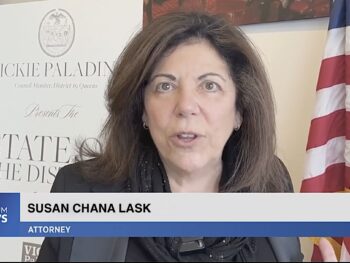
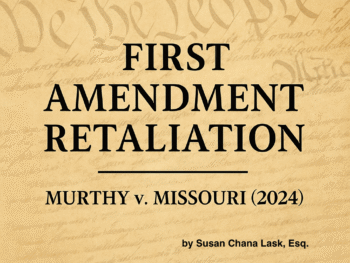
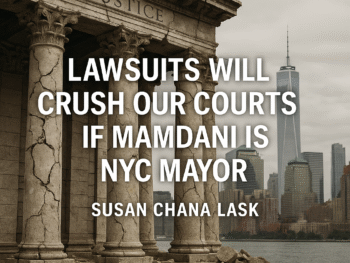
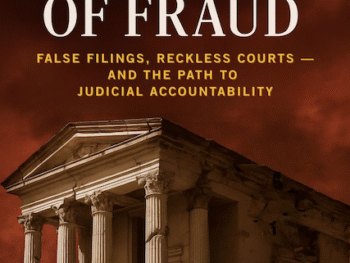
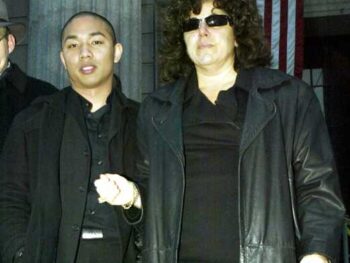




 LAW 360: LASK ANALYZES 11TH CIRCUIT GAY BIAS RULING FOR CHRISTIANSEN CASE
LAW 360: LASK ANALYZES 11TH CIRCUIT GAY BIAS RULING FOR CHRISTIANSEN CASE